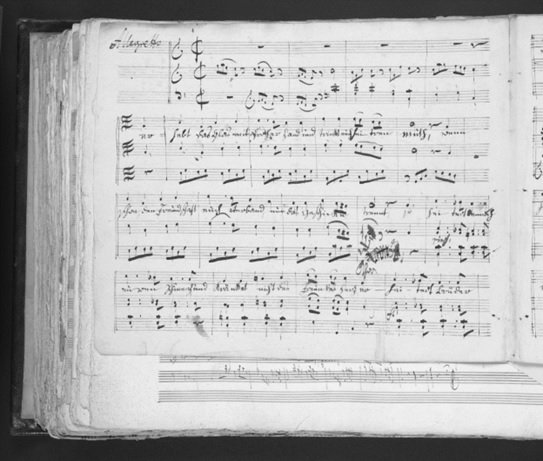Jesus solves the problem of origins
Who wrote the laws of nature?
The question is a part of one of the five great questions western philosophy has been asking for the past several thousand years:
Origins and infinite regress
Teleology and the laws of nature
Meaning and the significance of human beings (ontology)
The universe exhibits the overwhelming appearance of design. Part of this appearance arises from the influence on nature of the laws of nature, which are in Antony Flew’s words a regularity or symmetry in nature.1 Examples of laws of nature include:
The laws of thermodynamics—energy cannot be destroyed or spontaneously created, the total entropy of an isolated system will not decrease over time
Newton’s laws of motion—objects in motion remain in motion unless acted on by an outside force; every action will have an equal and opposite reaction
Universal law of gravity—every particle attracts every other particle in the universe with a force that is directly proportional to the product of their masses and inversely proportional to the square of the distance between their centers
The philosophical issue is: How can rationality such as these laws arise from non-reasoning materials? While the laws of nature perhaps can explain the great regularity and predictability of nature, what can account for the laws of nature themselves? From where did they come? The laws of nature are the “voice of rationality heard through the mechanisms of matter” (Flew, p. 111). Scientists proceed on the assumption that nature is thoroughly rational. They start with the assumption that the behavior of the universe is not due to constant, miraculous interventions, but rather to the laws of nature. They assume that there is a regularity and a symmetry to the behavior of the universe that make it predictable, if we can only find the laws and regularity. When we discover and contemplate the laws of nature, we are perceiving the mind of the one who created them.
Perhaps I can illustrate it this way. Nearly everyone acknowledges Beethoven’s brilliance as a composer. His Fifth Symphony is recognized by nearly everyone as a work of genius. Those of us who know something about his process know that it was torturous and difficult: draft after sketch after “correction” and cross-out and alternate idea that eventually resulted in a masterpiece (see the sketchbook above). Knowing something of Beethoven’s compositional process does not diminish in the least our appreciation of his musical genius. On the contrary, we admire his work even more.
Don’t misunderstand me. I’m not suggesting that God’s process in creating the universe was, in human manner, filled with corrections, cross-outs, and alternate ideas. In fact, we’re given a direct contradiction to that idea in that “God saw that it was good” (Genesis 1:4, 10, 12, 18, 21, 25, 31). I am suggesting that, even though we know something of Beethoven’s process of composition, we don’t dismiss his work as no big deal: “Fifth Symphony? What’s so great about that?” Just knowing about the process doesn’t diminish our appreciation of the result. The Fifth Symphony is still amazing, however Beethoven got there.2
Why, then, do some scientists, when they know about the marvelous “technique” nature uses (the laws of nature) to produce some remarkable result, feel that this diminishes the need for God, as if better understanding Beethoven’s technique somehow explains away his amazing product and his genius? “Oh,” we could say, “of course! We know about natural selection and the development of galaxies. Well, it’s no big deal, then. We don’t need God to explain anything!”
I remember praying earnestly for one of my friends and his wife that they would have a child. They had tried for years and even visited fertility clinics, to no avail. When they did finally conceive and have a wonderful daughter, I was so happy for them and thanked God. I said to my friend, “It seems that God answered our prayers.” His response was something like, “Well, I think we can thank the doctors,” as if we had to choose between thanking God and thanking the doctors. The doctors perhaps had a better idea of God’s laws of nature than most of us. We can still be grateful to the creator of those laws!
Where, then, did the amazing laws of nature come from? Did they somehow just arise from unreasoning matter? Or could they themselves be the product of supernatural intervention? Since the alternative is that the highly rational laws governing nature’s behavior arose from non-rational matter and energy, which alternative seems more plausible? Rational laws of nature arising from the mind of God is more reasonable. Further, the laws that govern nature seem themselves designed to influence the universe to provide an environment friendly to life and, ultimately, to produce life itself. How is that possible? Did the universe “know that we were coming?” Of course, I believe that God designed the laws of nature to produce a world hospitable for intelligent life—us!
1There Is a God: How the World’s Most Notorious Atheist Changed His Mind, 2007, New York: Harper Collins, p. 96.
2God’s creative process might have been more like Mozart’s. He seems to have created his music in his head and then just “wrote out” what he had imagined before ever taking pen to paper. This may have given rise to the legend that Mozart could write out the entire second violin part of a movement of a symphony he was composing, before any of it was written down—without corrections or cross outs.
This blog article is an excerpt from my book: Five Languages of Evidence: How to Speak about Reasons for Christianity in a Post-truth World. Not yet published; available upon request.
Next post: Math shows that God exists
